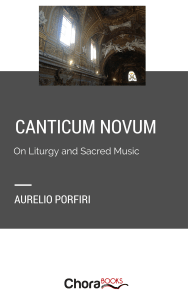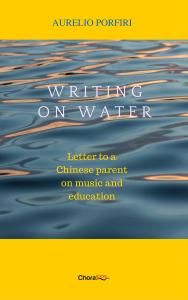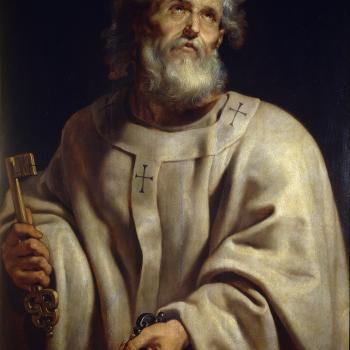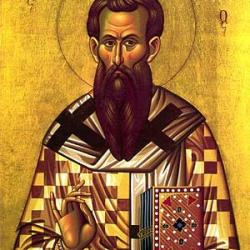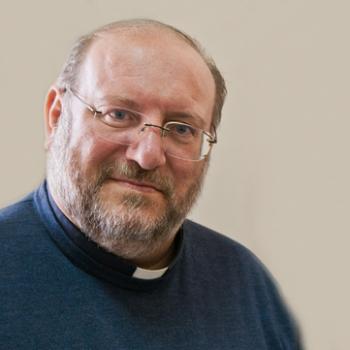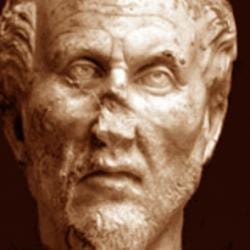 If there is a topic in Europe that keeps the media busy every day it would be the one about migrants. Migration is not a negative phenomenon in itself, if it is sustainable. But when its dimensions are completely out of control, as is happening here, something has to be done. In several European countries, like Italy, France and Sweden migration is a main factor of social unrest. President Donald Trump has built the campaign of his election on this very topic, making us understand also how much the Americans are frustrated from this phenomenon. Here in Italy the situation is explosive. You can see every day in Rome thousands of migrants that are jobless (as also Italians share the burden of finding jobs, wandering around and often asking for money, with good or bad manners.
If there is a topic in Europe that keeps the media busy every day it would be the one about migrants. Migration is not a negative phenomenon in itself, if it is sustainable. But when its dimensions are completely out of control, as is happening here, something has to be done. In several European countries, like Italy, France and Sweden migration is a main factor of social unrest. President Donald Trump has built the campaign of his election on this very topic, making us understand also how much the Americans are frustrated from this phenomenon. Here in Italy the situation is explosive. You can see every day in Rome thousands of migrants that are jobless (as also Italians share the burden of finding jobs, wandering around and often asking for money, with good or bad manners.
We cannot welcome everyone. As Catholics, we have a responsibility to help those in need, being careful not to encourage other people to become dependent. When we talk about migration we should define and distinguish need for helping those in needs with social policies that are directed to protect those that belong to a specific country. Of course we are not talking here of qualified migration, migration of people that contribute with their professional skills to other countries.
A recent book by Laurent Dandrieu, “Église et immigration, le grand malaise : le pape et le suicide de la civilisation européenne”, (Paris, Presses de la Renaissance, 2017, 311 p.) challenges some of the solutions offered in the last decades from the leadership of the Church regarding this problem. Dandrieu is a devout Catholic, so his book is a plea to fellow Catholics to reconsider some of these positions, with the respect due to the hierarchy of the Church. We don’t forget that the Code of Canon Law states clearly that lay faithful “according to the knowledge, competence, and prestige which they possess, they have the right and even at times the duty to manifest to the sacred pastors their opinion on matters which pertain to the good of the Church and to make their opinion known to the rest of the Christian faithful, without prejudice to the integrity of faith and morals, with reverence toward their pastors, and attentive to common advantage and the dignity of persons” (Canon 212, 3). And this right is even stronger if the topic has to do with society at large, not only with things that pertains to the life of the Church. And we don’t forget also that Pope Francis has recognized the right of journalists to form their own opinion on events. Even Catholic journalists have the right to disagree on policies that don’t pertain to the essential of the faith.
Laurent Dandrieu is a French journalist, specialized in culture (especially film studies). He is an editor at Valeurs actuelles, a well known French magazine.
In your book you start with quoting the Pius XII apostolic constitution Exsul Familia (1952) and the way this document deal with the issue of migration. What you can tell us more specifically about Exsul Familia?
“Pius XII is the first pope to write thoroughly on this issue, and Exsul familia is the first magisterial text on the subject. Pius XII is the first to mention a “right to migrate”, with the crucial restriction that it has to be caused by an absolute necessity, the lack of means of subsistence in one’s own country – a condition that has been abandoned by the following popes.
Although Pius XII’s positions on migration can be seen as more realistic than theirs, I believe that they are already marred with three flaws, which will be perpetuated from decades to decades :
- The Church’s position on the migration issue is really a position on the migrants, where the peoples of the host countries are never really considered, or only to reproach them their reluctance to welcome mass immigration. But their interest as a people is constantly ignored.
- The migrant is always considered as an abstraction, a Migrant with a capital M, with no regards at his cultural or religious background. Therefore the difficulties caused to the process of integration by these cultural or religious differences is hardly considered.
- The migration phenomenon seems to be always regarded in its materialistic causes and consequences, and its cultural or spiritual effects are very rarely considered“.
You perceived a change with John XXIII’s Pacem in Terris. Can you expand on this ?
“Pius XII conditioned the right to migrate to a vital necessity; John XXIII proceeds to a spectacular enlargement of this right by writing in Pacem in Terris : “When there are just reasons in favour of it, [every human] must be permitted to emigrate to other countries and take up residence there”. More generally, the pontificate of John XXIII is the beginning of what can be considered as a process of “canonization” of the migration phenomenon: he sees it as a “sign of the times”, a means to progress towards “the unity of the human family”. From this pontificate and until today, mass immigration is regarded by the Church with such favour that the rights of the people of the host countries, though theoretically acknowledged, are in fact systematically sacrificed by the Church to the interests of the migrants“.
Then you deal with Vatican II and Blessed Paul VI….what was their attitude toward migration?
“With Vatican II seems to triumph in the Church the idea that humanity is inescapably marching towards its unity, mass migration being a touchstone of this process. Thus, Paul VI shoulders a text from the Curia that says that “migrations […] attest and bring to perfection the unity of human family” and sees in these mass migrations “the Spirit of God”…“.
And Saint John Paul II?
“The case of John Paul II is very strange, because he was a great defender of nations: he said that nation is “the great teacher of men”, “the most important of communities on the spiritual level”, and even that “the defence of national identity has also a religious value”. He has also written that we should be “seriously committed to safeguarding first of all the right not to emigrate, that is, the right to live in peace and dignity in one’s own country.” But in the same time, he has taken position in favour of measures that make impossible to nations to defend themselves against mass immigration and its cultural consequences (regularizations of illegal immigrants, condemnation of assimilation policies, recommendation of family resettlements), and he has praised the evolution of the world towards multicultural societies. Moreover, he has declared that migrations were “an obligatory path to the building of a reconciled world”, and that “among all the human experiences, God has chosen migration to signify his plan of redemption of man”. That John Paul II has been unable to see the contradictions between these positions remains an unfathomable mystery“.
What about the last two Popes, Benedict XVI and Francis?
“In continuity with his predecessors, Benedict XVI describes mass immigration as “a prefiguration of the undivided city of God”. He also put the final stone of the process of absolutization of the right to migrate by writing that it “is numbered among the fundamental human rights, allowing persons to settle wherever they consider best for the realization of their abilities”.
With Francis, the subject has become a kind of an obsession. Although now and then he recalls the imperative of prudence, his many speeches on the subject form a plea in favour of an almost unconditional welcoming of migrants. For instance, in an interview with a Portuguese radio, he acknowledged the risk of infiltration of terrorists amongst the migrants, but at the same time he declared : “Obviously, if a refugee arrives, despite all the safety precautions, we must welcome him, because this is a commandment from the Bible.” In his speeches, he develops a vision of charity that has more to do with secular humanitarism than with the true traditional catholic vision: for charity cannot be confined to a generous impetus of the heart : it has to be efficient, responsible, just, ordained. It must have in mind the real good of the people concerned – and of ALL the people concerned -, not just the momentary comfort of the conscience of the person who speaks of it“.
What is for you the relationship between immigration and local identities?
“When a country receives in massive proportions people that bring with them a culture and a religion that is radically different, the local cultural identity is automatically at stake. When the migrants from another culture come in small numbers, it is a vital necessity for them to blend in the culture of the host country : whereas when they come in large numbers, they naturally tend to form communities distinct from the rest of the population, living accordingly to their own rules and customs. In many western countries, communities from foreign origin try to impose their way of live to the host population, instead of adapting themselves to the local culture. Moreover, there is the particular problem of Islam, which is in many ways incoherent with Judeo-Christian values and doesn’t recognize the separation between religious and civil power. Therefore many Muslims tend to regard their religious precepts as above the civil law. Moreover, it is in the nature of Islam to consider that every country inhabited by Muslim believers is destined to become a Islamic country…“.
Can you tell us a little about your situation with immigrants in France?
“France is a typical example of a country where decades of mass immigration has rendered integration impossible, so that certain analysts now consider that the populations of foreign origin (20 % of the people living in France are either migrants or sons of migrants) are now in a process of “disintegration”. The consequences are very palpable : aggressive communautarism, no-go zones, collapse of the school system, massive delinquency, explosion of Islamic fundamentalism…“.
But don’t you think that we, as Catholics, should help those in need?
“Of course we have to. But the whole question is “How ?” Mass migration towards Europe, which has failed in harmoniously integrating the migrants of previous generations, is not the solution. However impossible to integrate to European societies, the masses involved in the present migrants crisis are a grain of sand in the desert, regarding the poverty in Africa. The solution clearly can’t be to import tens of millions of Africans to Europe, which would only ruin Europe AND Africa. The only way to really help them is to work at the development of the African continent“.
You are a devoted Catholic. Don’t you feel uneasy taking a position that is somehow at odds with the one of the Church?
“Of course I do, but I only wish that someone had defended these positions sooner. Because the evolution of the Church towards more realistic views is vital, not only for Europe, but also for the future of the catholic Church in Europe. Because its present positions on migration are dramatically deepening the gap between the Europeans and Catholicism“.
Do you feel that your position about immigration is shared by many other brothers and sisters in faith?
“Indeed, many share these views, even if they not dare say it, for fear of hurting the unity of the Church. But being a catholic doesn’t prevent you from being a devoted citizen, and the Catholics who have a lucid care for the future of their countries are quite uneasy with the idealism of the positions of the Catholic hierarchy“.
SELECTED BOOKS (IN ENGLISH) BY AURELIO PORFIRI ON AMAZON.COM
Please click on the book cover
I would like to meet a Saint: a Spiritual Diary
Canticum Novum: On Liturgy and Sacred Music
Writing on Water: Letter to a Chinese parent on music and education


